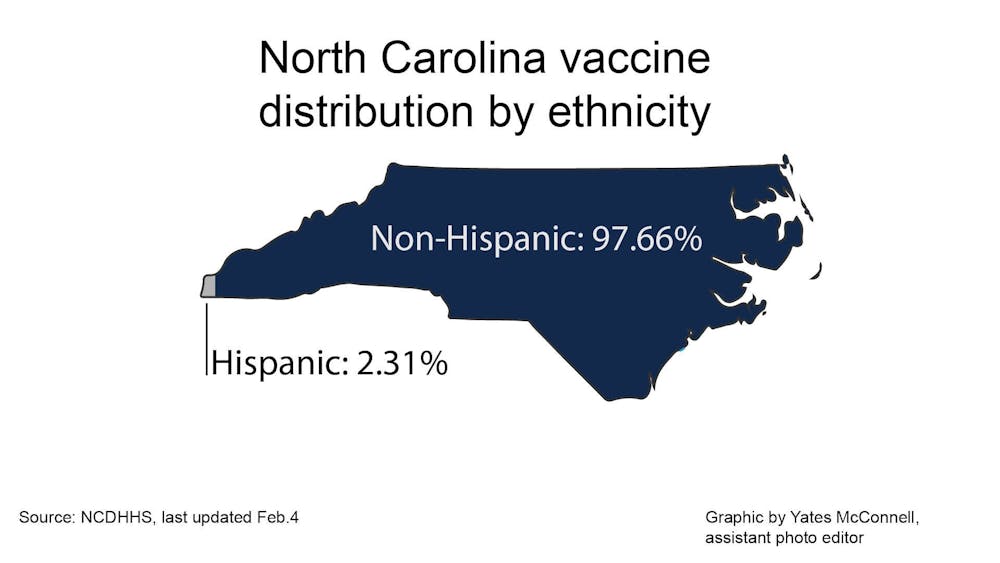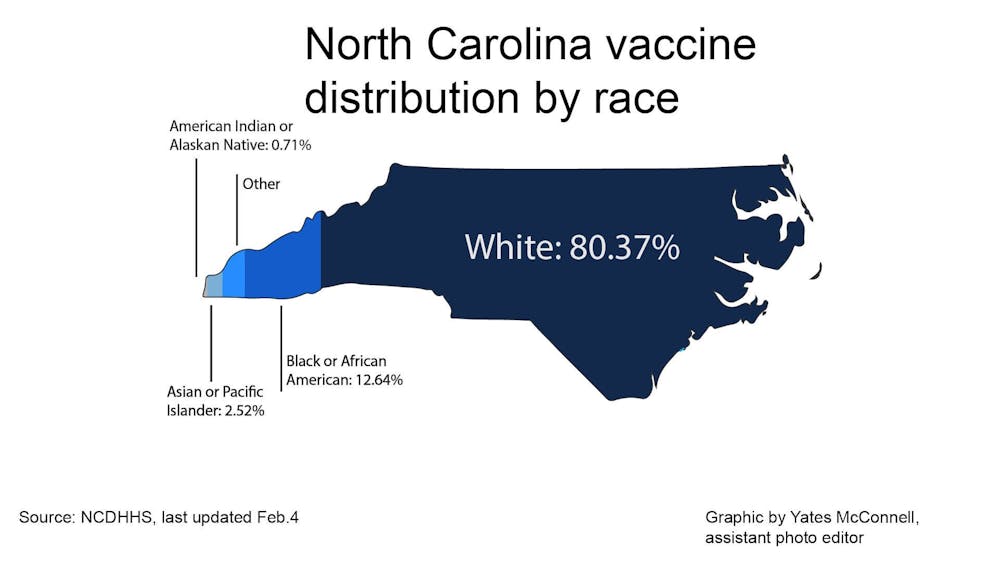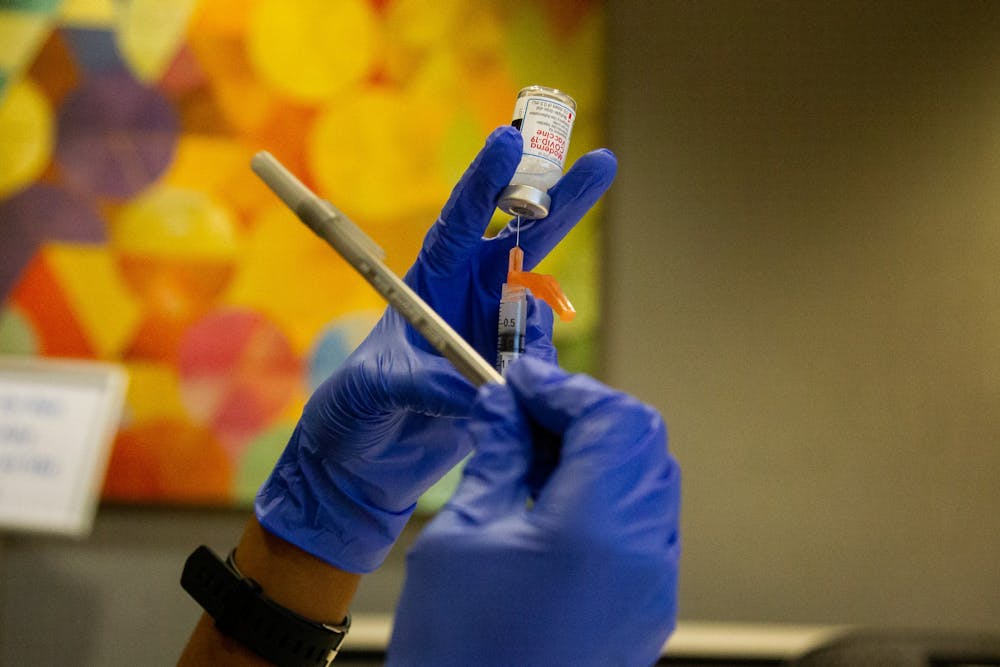Arrianna Planey, assistant professor at the UNC Gillings School of Public Health, said she believes collecting data is important, but there should be more steps taken after.
“It’s great that our public health agencies are collecting the data, but the question that remains is what are we going to do with it?” Planey asked. “We know these inequities are already there, and that data should help guide how we direct the resources as the vaccines are rolled out.”
Others, like NCDHHS Secretary Mandy Cohen, have praised North Carolina’s vaccination process for being the 6th in the United States, according to the Centers for Disease Control and Prevention, for total doses administered. Cohen has also acknowledged “vaccine hesitancy” in regards to the COVID-19 vaccine, but there are only a few initiatives taken by the health department to address the hesitancy.
Wright said when something new comes out, like the vaccine, higher levels of hesitancy can exist within Black and Hispanic populations based on a history of distrust between these groups and the healthcare industry.
On the other hand, many experts say there is a lack of racial equity due to the state only being in phase 2 of the vaccination process, where only first responders and those 65 years of age and up are eligible to get the vaccine.
Planey said we can expect racial inequity if vaccine distribution reflects social capital, which suggests racial inequity will continue as the vaccine becomes available to the general public.
Another reason for the lack of racial equity can be attributed to technological barriers such as computer and internet access. According to the North Carolina Department of Information Technology’s Broadband Infrastructure Office, only 59.4 percent of state residents have access to broadband internet service plans in their households. The majority, if not all, COVID-19 vaccine appointments are being scheduled online, leaving a large portion of North Carolinians at a disadvantage.
“[Health departments] are making sure the websites are accessible for people who have slow internet speeds, people who may not have access to broadband, people who may not own a computer and people who may be using a mobile phone to access the site," Planey said.
The lack of racial equity can also be attributed to language barriers, especially in regards to the Latinx community. According to the Carolina Population Center, around 11 percent of North Carolinians do not speak English at home. Of those, around 67 percent speak Spanish.
“We’ve really honed in on working with our Latinx partners in communities across the state," Wright said. “When COVID-19 started, we quickly stood up a funding opportunity with Latinx partners across the state.”
NCDHHS chose five Latinx organizations on June 26, 2020, and awarded each of them $100,000 to help provide messaging, education and resources to the Spanish-speaking communities they serve. With Latinx people making up nearly half of COVID-19 cases in the summer of 2020, the department took this initiative to slow the spread within this community.
One of these chosen Latinx organizations, the Association of Mexicans in North Carolina, is working to register Latinx people to receive the vaccine for free due to the lack of Spanish-language resources when making an appointment.
To get the day's news and headlines in your inbox each morning, sign up for our email newsletters.
“It’s important that the Latinx community has the same opportunity to make an appointment to receive their vaccine just like the rest of North Carolina,” AMEXCAN Operations Manager Maritza Mata said in Spanish.
She said they know most people want the vaccine, however, the barriers can make the process hard.
These organizations are working to make the COVID-19 vaccine distribution, as well as other medical advances, equitable for all people.
Planey said these inequities existed before the pandemic and continue.
“We’ve seen these inequities in access to testing, inequities in access to workplace protection and personal protective equipment,” Planey said.
@julianrberger
@DTHCityState | city@dailytarheel.com





